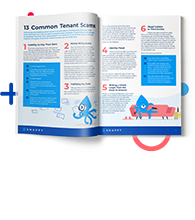Cybersecurity is of the utmost importance when it comes to protecting your business. Even with proper measures in place, your system can still fall victim to breaches. But what happens when an attack is so new and unknown that there are no defense mechanisms in place?
What is a zero-day attack?
Zero-day attacks (also known as breaches or exploits) occur when hackers exploit a vulnerability in software or hardware before the developers have had a chance to create a patch or fix it. The name comes from the “zero days” businesses have to prepare and defend against the attack. These types of attacks can be especially damaging as they take advantage of previously unknown weaknesses, making it difficult for businesses to protect themselves.
The impact of a zero-day breach on your business can be devastating. Not only can it lead to financial losses, but it can also damage your reputation and destroy customer trust. A successful attack could result in stolen sensitive information, such as customer data or intellectual property, compromising the security of your entire system.
Get our free guide to uncover the latest rental scams and how they’re costing properties thousands.

Zero-day fraud breaches in the multifamily industry
The multifamily industry handles a lot of customer and resident information, which, unfortunately, makes it prone to cyber-attacks. A zero-day fraud breach might look like a hacker tapping into a fraud detection system and exploiting a weakness or a break-in to retrieve customer information.
When it comes to applicant fraud, a zero-day breach might occur when a bad actor finds a way to successfully sneak past fraud detection software. For example, Snappt’s Fraud Forensics team discovered a devious type of fraud that involves an applicant using a real pay stub from a legitimate company, even though they don’t actually work there. This type of attack, known as Inception Fraud, is particularly dangerous because it can go undetected by traditional fraud detection technologies and it required Snappt to implement a new step in their process.
Combating these attacks
Given the sophistication and severity of these breaches, businesses will need help to adequately protect themselves. Invest in a fraud detection company that not only has state-of-the-art technology but also has a dedicated team dedicated to tracking and remediating these issues. This team should be at the forefront of finding and stopping the latest fraud tactics and trends.
Additionally, multifamily businesses need a strong and comprehensive security system. This includes protecting customer information and monitoring systems for potential vulnerabilities or suspicious activity. One way to do this is by regularly conducting risk assessments and staying current with the latest security protocols. It’s also important to educate employees on proper security practices and ensure they understand the importance of keeping customer data safe.
Tips for protecting your business
Stay informed: Zero-day exploits and attacks aren’t always publicized, but if keep up with the news and pay attention to releases from your software vendors, you may have time to put in security measures or respond to a threat before it gets exploited.
Keep your systems updated: Developers diligently strive to keep their software updated and secure against potential exploits. Once a vulnerability is identified, a patch is typically released shortly after. However, it remains your responsibility to ensure that your software platforms are consistently up to date.
Employ additional security measures: Ensure that you are using security solutions and vendors that protect against zero-day attacks.

